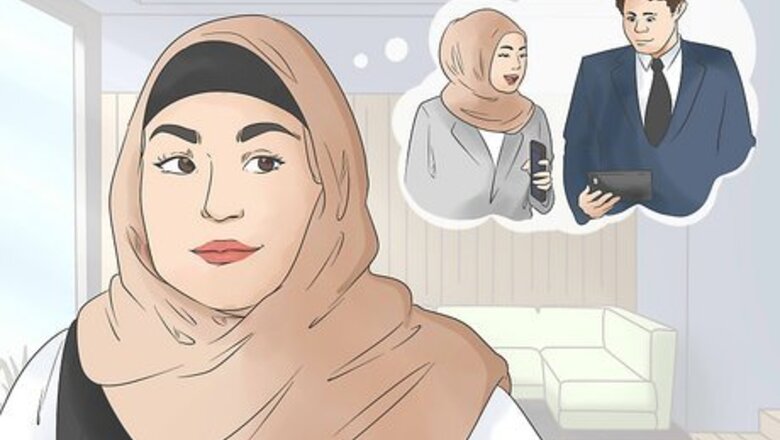
views
Finding New Friends
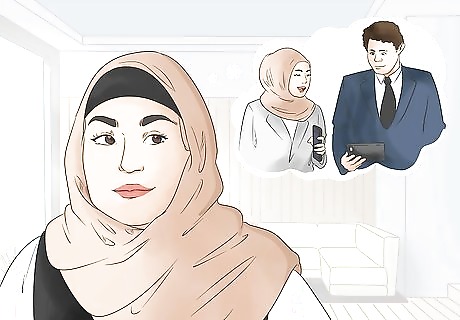
Consider your work. You probably have people at work that your friendly with but you haven't taken the time to get to know better. One of the keys to encourage friendships at work is to slowly make your relationship more personal. That is, you slowly start to share more about yourself with the people you enjoy talking to you, which in turn invites them to share more about themselves.
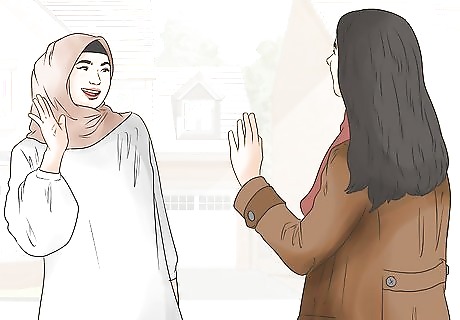
Find friends in your neighborhood. In general, you tend to make friends with people who are nearby, which includes your neighbors. If you've talked a few times with a neighbor, consider trying to encourage a friendship by inviting the person over for dinner or bringing her brownies. Alternatively, meet your neighbors by bringing over a treat to encourage good will.
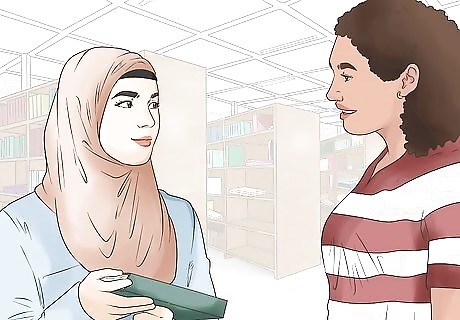
Follow what you love. One of the best ways to meet new people is to follow your passions. Find local groups that have the same interests you do. Look for groups that meet at your library with the same hobbies. Take classes in subjects that interest you at your local art museum or community college. By getting out in the community, you'll find people with similar interests who could become friends. If you can't find a group for your hobby, start one yourself. Most libraries have space to host groups, or you could meet at a coffee shop or restaurant. Try forming groups through social media such as Facebook or Meetup.
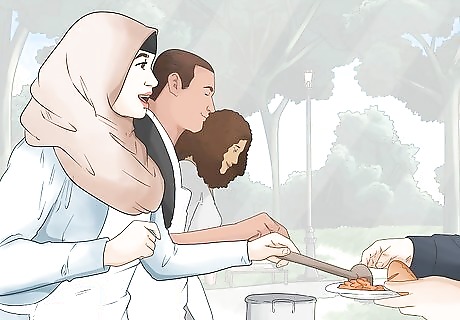
Find a place to volunteer. Besides benefiting the community, volunteering also gives you a chance to meet new people. Consider volunteering at a library, a school, a hospital, a soup kitchen, or a food pantry, for instance. Pick something that will use your talents well.
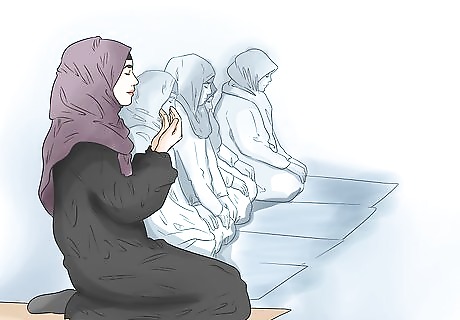
Consider joining a spiritual community. Spirituality comes in many forms, from more traditional religion to pagan groups and meditation. No matter what form you choose, it usually involves a group of people for you to engage with who likely have at least somewhat similar beliefs.
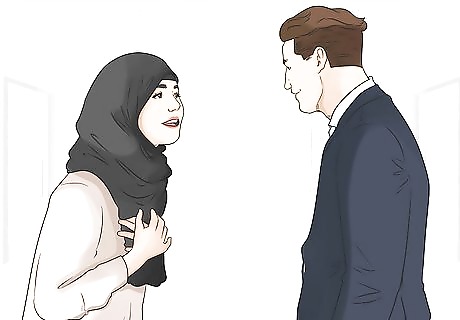
Greet people. If you see someone reading a book you love in a coffee shop, don't be afraid to go over and say hello. Similarly, if you've been smiling at the same person for weeks in one of your new classes, be sure to go over and introduce yourself. You can't be friends if you never hold a conversation, and the worst that could happen is you get someone who is a little grumpy and doesn't want to talk to you.
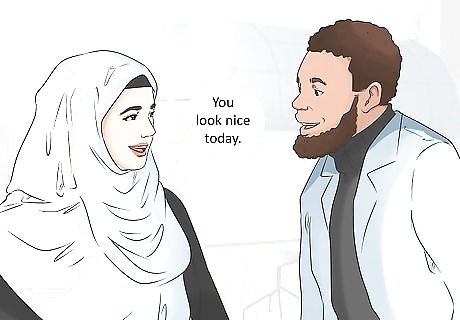
Offer a compliment. You like to hear nice things about yourself, and other people like to hear nice things about themselves, too. Try to offer compliments to people you are getting to know. It will make both of you smile, plus the person will associate happiness with being around you. Try to make the compliment fit the person. That is, "You look nice today" is a good start, but a better compliment would be, "You have an awesome sense of style. I love how much color you wear." or "I love how your smile lights up a room."
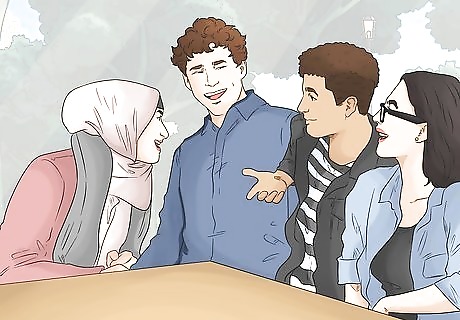
Make it a point to see the same group of people. That is, once you start meeting with a group of people, continue to see that same group. With repeated to exposure to each other, you'll slowly begin to make friends with different people in the group.
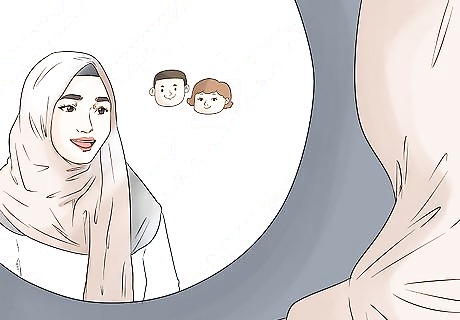
Tell yourself you're going to make new friends. When you're in a new situation, set a goal for how many people you'd like to meet or make friends with. While the goal is important, it's more the mindset it creates. It encourages you to be open to meeting different kinds of people and opening yourself up to a friendship.
Turning Regular Friends into Best Friends
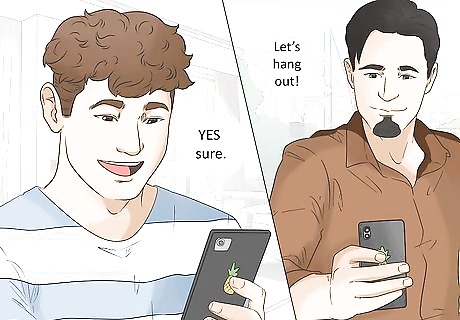
Make and accept invitations. If you tend to be a homebody, it can be tempting to say "no" to social events. Nonetheless, if you're trying to make new friends, show up to events you're invited to. In addition, show up to more personal appointments, too. That is, if a friend invites you for coffee or to the movies, agree to go. In return, ask people you know to go have coffee with you. In addition, if coworkers reach out to you to start friendships, encourage the interaction.
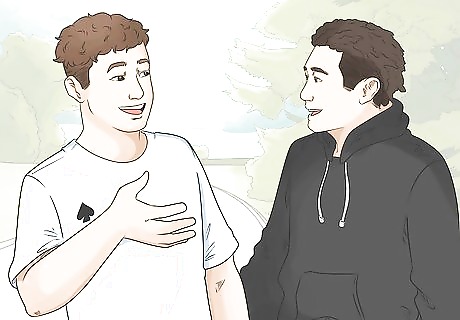
Find out more about the person. If you're going to make someone your best friend, you can't leave your friendship on superficial topics such as the weather. Try to make the relationship go deeper by encouraging more substantial conversation. Ask about her hopes and dreams. Talk about what keeps you up at night. Ask her what she worries about. Question her about what she likes and why she likes those things, such as her favorite movies, books, and quotes. Pushing the conversation further helps you get to know each other. You're asking the other person to be vulnerable, so you must learn to be vulnerable in turn. Try to share personal stuff about yourself, as well.
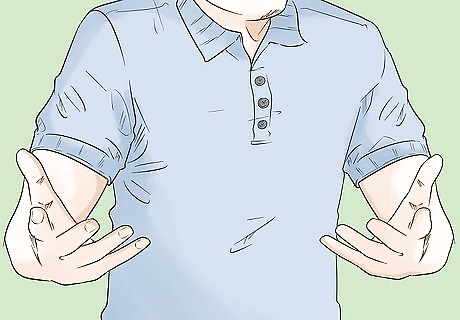
Use body language. Show your new friends you appreciate them with your body language. That is, smile when they enter the room. When they are talking, be sure to give them your full attention, even with your body. Don't be looking at your phone or fidgeting with something to the side. Giving nonverbal clues help to establish that you want to be a good friend. For instance, make sure your body is pointing towards the person, and try not to cross your arms, as that can signal you don't want to talk to the person.
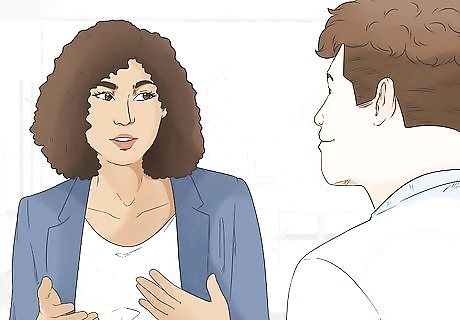
Learn to listen. Of course, you want a friend who will lend you an ear when you need it. However, that also means you need to be willing to do the same. Pay attention to what your friend is saying, and try to listen between the words to find out if she's really trying to signal something more. For example, if your friend says, "I've been pursuing my own interests lately." when you ask her how her and her spouse are doing, that may signal she's having a little bit of trouble with her marriage and may want to talk about it. Reader Poll: We asked 612 wikiHow readers who they go to when they need to talk through something, and 62% said that they reach out to their best friend for support. [Take Poll] If you want to turn this friendship into a best friendship, make sure the other person knows that you'll be there for them when they need you.
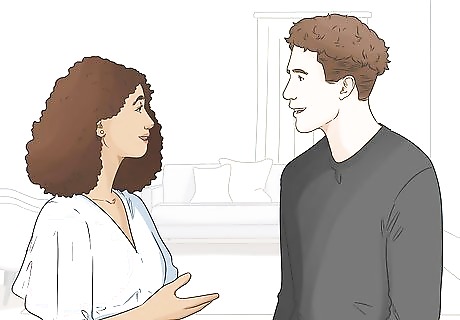
Let it grow. Friendships, like romantic relationships, don't happen overnight. They need time to grow and build. Be patient with your new friends, and let the deeper relationship grow over time. For example, at work you may start talking to someone more often. However, it may be several weeks before you go out and have dinner together, just because of the nature of work friendships. Many do not move beyond the office.
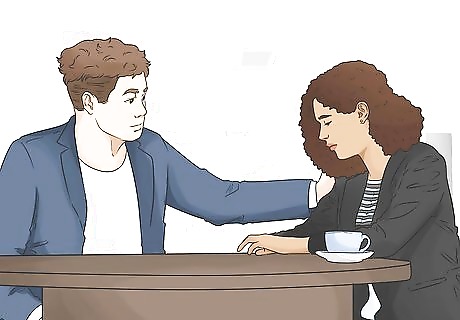
Give your time. To show that you care for your friend, you have to show up when you say you will. That doesn't just mean you show up for the good times. You need to be there for the bad times, too.
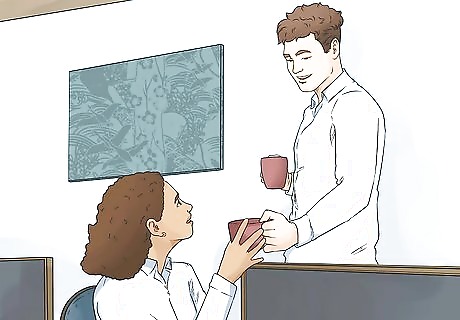
Make time for the little things. It's really the little things that make up a friendship. As you grow closer to people, performing small gestures can mean a lot, such as bringing the person a cup of coffee, dropping a note in the mail, or even bringing the person a meal when she's feeling down.
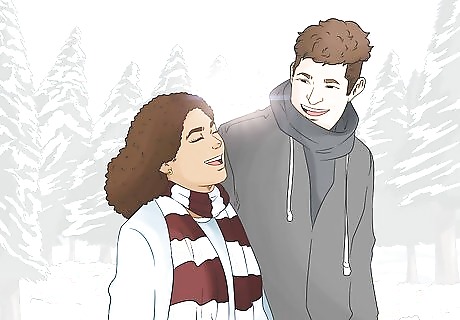
Increase the intensity of your outings. That is, consider going out of town together for a bit. Spending all day, every day together for a few days is sure to bring you closer together, especially if you're holed up in the same hotel room with each other. Plan a fun little getaway together.
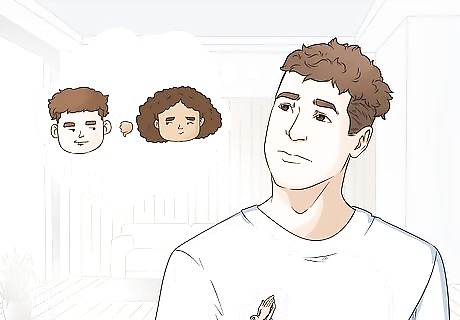
Understand that it may not work out. Not all friendships can turn into best friendships. In fact, most won't. Many people only have three to five very close relationships, so if you've got that number of friends or relationships, you're doing just fine. In fact, you may find that the more you get to know a person, the more you dislike him or her. Just because you work with someone or live near someone doesn't mean you need to be friends with that person.
Making a New Best Friend as a Kid or Teen

Be open to meeting new people. When you're in class, an after-school club, or an organization you or your family belongs to, try looking for people you haven't met before. Sometimes, you may get in a rut and hang out with just the same people all the time. Being open to new people can help you make new friends. Try not to judge other kids by what they look like. You may think someone's not like you just because they look a little different, but that person could easily have a lot in common with you. It's okay to feel nervous at first! Focus on recognizing that feeling of fear and acting the opposite of how your body is telling you to act.
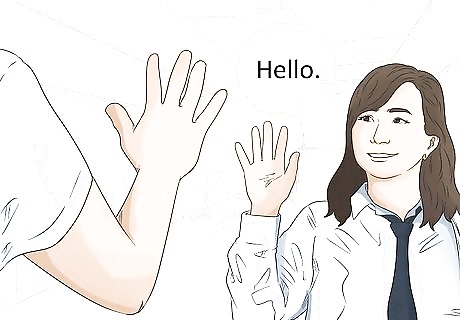
Say hello. The best way to get a conversation started is to just say "Hello." You should also include your name and ask what the other person's is. For instance, you could say, "Hello, my name is Dorothy. What's yours?" You can also use whatever you're doing to help the conversation along. As an example, you could ask a friendly question like "Are you new to pep club?" or "How's lunch today?"
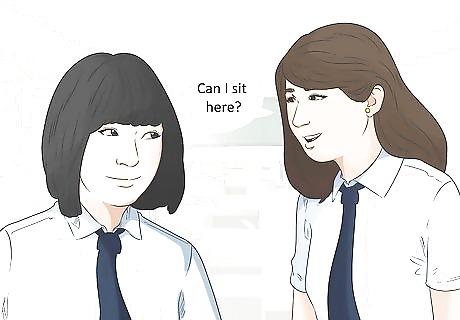
Ask if you can hang out with the person. That is, if you're at lunch or in a club, ask the person if you can sit with them. Spending time with the person is a good way to get to know them. For example, you could say, "Hi, I noticed you over here, and I realized I've never said hello to you. Do you mind if I sit with you today?" The conversation may not go anywhere, and that's okay! What matters is that you put yourself out there and tried making a connection.

See if you can hang out other times. Once you've sat with the person a few times, try meeting up at other times. Maybe you can work on homework with each other in the library, or maybe your parents would be okay with you having the person over some time so you can get to know them better. When you have someone over, that means you're the host. In other words, you need to make sure your guest is having a good time. Ask the person what he or she wants to do. You can have a few things prepared to do, as well. You can tell if the person is having a good time by watching to see if she or he laughs and smiles.

Ask her questions. One way to get to know another person is to ask that person questions. You could ask her what her favorite movie or book is. You can also ask about her family and what other things she likes to do. As you get to know her more, you can make the questions a bit more serious. For example, you could ask him or her what makes him afraid or why he likes certain things.

Be nice. Like water helps plants grow, kindness helps friendship grow. Do nice things for your friend, like letting her borrow your calculus notes, bringing her a drink when you get one, or writing her a note to say you enjoy her friendship are all small things you can do to show you like her for a friend.

Learn to listen. Friends are good listeners. You like to tell people what's going on in your day and so do other people. That means that while you should be able to tell a friend what you're thinking, you also need to be able to hear what a friend is saying and respond. For example, if your friend says, "I had a hard night last night," don't immediately say "Me, too," and go off and what happened. Ask her what happened first. If you're not used to having this type of conversation, ask one of your parents if they can help you practice. Not everyone finds it easy to hold conversations with other people.

Accept the person. That is, you may find things in the person that you don't like or you wish to change. Everyone has little flaws or things that don't jive with other people. Try to accept the person as he or she is. After all, you probably have parts that the other person doesn't quite get, either.











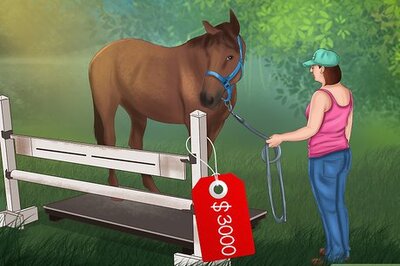





Comments
0 comment